Global WA Development Policy: The Blog!
Posted on October 7, 2009.
by Global Washington Policy Coordinator Danielle Ellingston
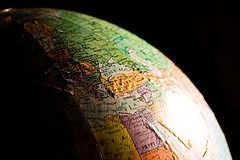 Welcome to development policy posts on the Global Washington blog! You may wonder why we need another development policy blog, since there are so many great global development blogs already out there. Well, this blog is different- we will bring you the news and noteworthy ideas on a weekly basis, with a special emphasis on issues of interest to the development community in Washington State. Our state is second only to the “other Washington” in organizations committed to global development, and now the many voices of development in Washington State have a venue to come together to discuss and influence policy.
Welcome to development policy posts on the Global Washington blog! You may wonder why we need another development policy blog, since there are so many great global development blogs already out there. Well, this blog is different- we will bring you the news and noteworthy ideas on a weekly basis, with a special emphasis on issues of interest to the development community in Washington State. Our state is second only to the “other Washington” in organizations committed to global development, and now the many voices of development in Washington State have a venue to come together to discuss and influence policy.
Here’s what you can look forward to in future posts to this blog:
· Foreign Aid Reform status– progress with legislation and the administration’s efforts, such as the Presidential Study Directive
· Ideas for making aid work better
· Development and Policy News from around the state
· What’s happening in other countries and the multilateral organizations
· How you can become involved
First and foremost, the Presidential Study Directive is picking up steam and the Obama administration is looking for your input on where to focus foreign assistance. We sent out a survey to our mailing list asking for input, which we will compile and send off to DC. If you’re on our mailing list and you didn’t get this survey, you might check your email spam box. We’ll be looking for more input in the future, so please make sure to put Danielle@globalwa.org on your safe list! (And of course, sign up to be on our mailing list if you haven’t already done so.)
If you didn’t get a chance to respond to our survey, you can still make your voice heard by commenting on the Center for Global Development’s blog, where they are also collecting ideas.
Need more information? Check out this link to background information on U.S. Foreign Aid policy, with lots of helpful information and links, from the Puget Sound Millennium Development Goals Project.
And finally, some food for thought on aid – MCC chief economist Franck Wiebe writes about a new (and controversial) standard for aid effectiveness, making aid at least as good as cash from a helicopter. Read it here.
Globe photo by ToastyKen at Creative Commons
September 2009 newsletter
Posted on September 24, 2009.
Welcome to the September 2009 issue of the Global Washington newsletter. If you would like to contact us directly, please email us.
IN THIS ISSUE
Note from our Executive Director
 Greetings-
Greetings-
I am excited to share with you some of our plans for our upcoming conference.
Washington State stands at the intersection of four important realities: 1) a long history of global trade and global perspective, 2) proven entrepreneurial/philanthropic innovation, 3) home base for a large array of global development organizations, including the world’s largest private foundation, and 4) a proven track record of incorporating technology and human ingenuity into philanthropic endeavors, producing fresh approaches and unprecedented results.
This combination of traits has led to an increasingly energized and synergistic global development community. Through the annual conference we seek to foster collaboration in our community—and with business, non-profit, policy, and academic leaders– to forge new alliances, eliminate duplication of effort, and amplify our impact globally for the benefit of the people we serve.
Our goals for the conference are to engage the global development sector in setting priorities for our work with a unified voice. By using cutting-edge social networking technology (‘digital democracy’) as well as traditional approaches, our goal is to give all members of the global development community an equal say in setting priorities for our sector’s work, creating a unified voice. With this unified voice, we can communicate about our mission more clearly, influence decision-makers, and effect large-scale change around the world.
I hope that you will be engaged in this process of setting priorities over the next few months prior to the conference. We will send you more information on how to get started on this in the next week.
In unity,
Bookda Gheisar, Executive Director
top
Spotlight: Global Washington Annual Conference Registration Now Open
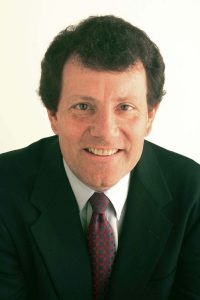 Global Washington is excited to announce that registration is now open for our annual conference, A Blueprint for Action. This conference will harness the enormous energy of Washington State’s global development advocates and use the power of our state’s revolutionary technology and entrepreneurial expertise to change our world together.
Global Washington is excited to announce that registration is now open for our annual conference, A Blueprint for Action. This conference will harness the enormous energy of Washington State’s global development advocates and use the power of our state’s revolutionary technology and entrepreneurial expertise to change our world together.
It is an honor to present Nicholas Kristof, Pulitzer Prize-winning journalist, as our keynote speaker. He recently published a book with his wife about women in the developing world entitled Half the Sky: Turning Oppression into Opportunity for Women Worldwide. Previously, he was associate managing editor of The Times, responsible for the Sunday Times. As we mentioned in last month’s newsletter, the New York Times Sunday special section focused on women and development, and included some great articles. Engender Health also has an interesting on-line reader’s guide to Half the Sky, chapter by chapter, with suggestions for what readers can do to translate outrage into action.
This dynamic conference is marked by an innovative social media approach to give all community members an equal voice in setting the priorities for our sector. Next week we’ll announce details for engaging in this process of ‘digital democracy’. The conference will also feature breakout sessions, panels and speakers on a range of topics including women in poverty, education, health and much more. Click here to view the details and to register now!
Take advantage of our early bird registration discount by registering before October 13th!
top
Featured Organization: Teachers Without Borders
The Vision of Teachers Without Borders
 A great teacher can pinpoint the exact place to stimulate the health of a village, a region, an entire continent. The more than 59 million teachers in the world can play a leadership role in global development. They know who is sick, who is missing, who has been abducted into the sex trade or conscripted into a military gang, who has been orphaned by AIDS, who is achieving and who is not.
A great teacher can pinpoint the exact place to stimulate the health of a village, a region, an entire continent. The more than 59 million teachers in the world can play a leadership role in global development. They know who is sick, who is missing, who has been abducted into the sex trade or conscripted into a military gang, who has been orphaned by AIDS, who is achieving and who is not.
Teachers Without Borders, started in Seattle in 2000 by Dr. Fred Mednick, supports teacher leaders, worldwide, with professional development opportunities and tools that connect them with information and each other so that they may play a more vital role in their communities. It is a non-profit, with a small staff, and a large community of talented teachers. Click on: Core Programs to learn more.
TWB’s Current Projects. Click on the link and learn more about each of them.
Open Education Resources – Teachers Without Borders is committed to removing barriers to educational resources available online. 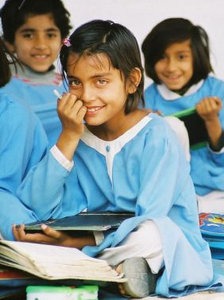 In so doing, it is working with the William and Flora Hewlett Foundation to provide opportunities such as TWB Toolset, which provides a free social network, action groups, and courseware.
In so doing, it is working with the William and Flora Hewlett Foundation to provide opportunities such as TWB Toolset, which provides a free social network, action groups, and courseware.
Clinton Global Initiative – Teacher professional development for Cameroon, Ethiopia, Kenya, Nigeria, and Rwanda. Supported by the Cisco Public Benefit Investment Group, Teachers Without Borders is providing teacher professional development and evaluation, as well as a Certificate of Teaching Mastery (connected to each of the national standards), and support for both local non-governmental organizations and the Ministries of Education.
Mediterranean Youth Technology Club (MYTecC)– This program for youth of the Mediterranean region and the Arab world promotes access to information and each other. Students in eight countries (Cyprus, Egypt, Israel, Morocco, Palestine, Portugal, Turkey, Yemen) enroll in a two-year, after school program designed to learn about each other across borders, gain skills in technology, and 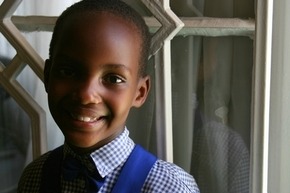 improve their English through IT and English Language Proficiency Curricula. They are prepared for international certification as IT Professionals. MYTecC classroom activities are both central to and supported by a virtual community of teachers and students.
improve their English through IT and English Language Proficiency Curricula. They are prepared for international certification as IT Professionals. MYTecC classroom activities are both central to and supported by a virtual community of teachers and students.
Youth for Habitat – Use of TWB Tools to network Turkish youth volunteer organizations. Available entirely in Turkish, this program promotes participatory democracy and information technology skill development.
Scholastic’s TeacherShare – TWB was chosen as the organization to help Scholastic Magazine (largest K-12 publisher in the United States) embrace open educational resources for its 2.5 million users, per month
Recent News about TWB
Teachers Without Borders’ Founder, Dr. Fred Mednick, has been invited to speak at the Global Creative Leadership Summit, a gathering of heads of state, Nobel Prize winners, and achievers in innovation designed for social change. The TWB programs are also expanding; the Mexican government shall launch a version of the TWB Toolset for over 1,000 teachers, this fall, and programs in China and sub-Saharan Africa are receiving national attention and accreditation.
top
Changemaker: Diana Pallais – Forging Bridges of Opportunities Across Contrasts
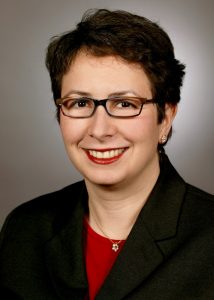 Dr. Diana Pallais’ outlook in life has been framed by a study in contrasts. And her vocational calling has been devoted to forging bridges of opportunities across those contrasts. This is her story.
Dr. Diana Pallais’ outlook in life has been framed by a study in contrasts. And her vocational calling has been devoted to forging bridges of opportunities across those contrasts. This is her story.
Her country of provenance, Nicaragua, has a GNI/capita of $930 USD. Her adopted country, the United States, has a GNI/capita of $44,700 USD. Nicaragua’s political development has been marked by violent transitions, and weak political institutions. The United States has one of the most nimble institutional platforms to absorb socio-political change and empower its citizenry. But the contrasts are more complex than this pattern suggests. Thanks to her Nicaraguan roots, and the palpable manifestations of its political milestones, Diana has been acutely aware of the importance of being a participant in history not just an observer. The sense of efficacy that guides Diana was perhaps enabled by the smaller scale of Nicaraguan politics. Perhaps. But it certainly could not have happened without the towering influence of her family, especially a larger-than-life grandmother, Juanita Sampson de Argüello, who instilled upon her granddaughter not only a sense of social justice, but the imperative to take action. And to understand this influence is to appreciate the cultural contributions that were possible only in a place like Nicaragua, where the magical and the real are often interchangeable (e.g., Diana’s grandparents’ neighbors in León claimed to have had a “rabbit-cat” as a pet), where the cultural and religious traditions are felt and practiced intensely by individuals and the community with something that borders on street theater as an outlet of the religious devotion (e.g., Good Friday in León is observed with a Mass followed by an actual funeral procession where people of all socio-economic classes dress in solemn attire with the emotions to match), story-telling and poetry are a sport in a world where media are not abundant but the imaginative rivers run deep. Resilience and improvisation are virtues that abound.
What does all this have to do with Diana´s professional endeavors at Microsoft, which one could crudely reduce to selling Windows and Office worldwide? A lot actually. You see, Diana approaches her job as an opportunity to bring empowerment to the masses through the magic of software, but she is aware that this can only happen in the proper context with the appropriate array of public and private partners and in alignment with public policy objectives. So, as part of Microsoft´s growth strategy, she pioneered a new business model of commercially viable public-private partnerships (PPPs). The vision is to empower e-citizens to enable e-government. In four years, Microsoft’s Partnerships for Technology Access (PTA) initiative has reached over 3 million new e-citizens through some of the most challenging economic environments. We are not talking about charity here. These are 3+ million paying customers who purchased not only a PC with genuine software, but the opportunity to put it to valuable use as they leverage government benefits intended for them. But the PTA initiative, which Diana founded, delivers these goods affordably through a fresh line of credit brokered by a bank through the PPP consortium; the bank in turn was assisted by others in the consortium to establish collateral or a reliable repayment mechanism.
All of this was part of the business design Diana had in mind from day one. She noted that there was a perfect correlation between Microsoft´s client base of approximately 1 billion citizens in the world and those who had access to formal credit. So to go beyond this base—using credit as a vehicle of access for more customers—the challenge transcended the software industry. Diana understood that banks would not lend to the 5 billion unbanked citizens unless there was appropriate collateral, information about creditworthiness, or a reliable repayment system. In other words, there were market failures to overcome. And, as a trained Political Economist, Diana knows that the state is at its best when it is solving market failures. A public-private partnership (PPP) model was the logical next step for Diana to explore.
Since PPPs were only a concept to her, she approached it a couple of different ways. First, she got close to the PPP work that her Egyptian colleagues at Microsoft had pioneered as they enabled 300,000 citizens to purchase their first PCs. Second, as she always does, she mapped it out logically to form a model that could be sustainable beyond the exceptionally favorable circumstances she found in Egypt. She knew that it had to be a win-win for the stakeholders, but the definition of “win” is different for each of them. Closing the digital divide is a compelling business objective for technology companies that stand to profit. But for the rest of the stakeholders—banks, telcos, government officials—digital inclusion is something they can support in principle but not be moved to take an active role in themselves. Diana understood that, for instance, for a government official to move from a tacit supporter of narrowing the digital divide to a stakeholder in its quest, she had to offer them the opportunity to narrow some other divide: the health divide, education divide, pension reform, workforce competitiveness, etc. In this sense, technology access was a means to an end rather than an end unto itself. Otherwise, support would be superficial, and the PC initiative would not be sustainable.
When one looks at a well-built PTA deal, the kind that Diana is most proud of, it is easy to think that this array of interlocking interests across so many different sectors and industries was simply meant to be. But it is far from that straightforward. In fact, it is Nobel Prize material. In 2007, the Nobel Prize committee recognized the body of work in Economics known as Mechanism Design Theory. The puzzle this theory explores is this: “If we are all rational-egoists, how is it that some of us engage in collaborative behavior for the social good?” Their answer is simple: incentive alignment. In other words, you have to build a consortium such that every actor is solving another´s “last mile” challenge. The promise of this breakthrough will make it worthwhile for them to do things a little differently through a PPP. Diana´s PTA colleagues at Microsoft were savvy enough to take their time to understand the different incentive structures of a prospective partner and develop their business deals accordingly. This is the key to their success. But that´s not all. Diana’s success at Microsoft also hinged on the tremendous support of key executives, including Gerri Elliott, Craig Fiebig, and Jean Philippe Courtois who saw the merit in Diana´s business plan and were willing to take a chance on a different way to arrive at success. As outlined in books such as the “Innovators’ Dilemma,” strategic shifts of this kind are rare in large and successful organizations where reluctance to part with the strategies that worked well in the past can stymie innovation. One wonders if these executives saw in Diana´s proposal not just a buttoned-up business plan for growth, but also the opportunity to earnestly carry forth the kind of impact in the world that Diana’s Abuelita Juanita instilled in her as a child. In 2009, after 3 million citizens were served, the remit of commercially viable PPPs has gone mainstream at Microsoft.
At home, Diana considers herself blessed with a wonderful family. Her partner of 16 years, Judy Aks, is a child development professional. She has been Diana’s rock and partner in every sense. They have two wonderful children, Sebastián, age 6, who recently started kindergarten, and Sofía Juanita, named after her great-grandmother, age 2. The Pallais-Aks family is looking forward to returning to Nicaragua this December. León looms large in the Pallais-Aks household.
top
Global Entertainment: The Post-American World
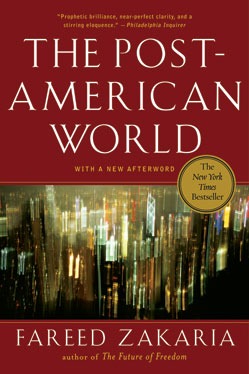 The Post-American World, paperback edition, with a post economic meltdown preface, by Fareed Zakaria, 2009
The Post-American World, paperback edition, with a post economic meltdown preface, by Fareed Zakaria, 2009
American foreign policy during the George W. Bush administration, posits Fareed Zakaria, was a swaggering misreading of history that resulted in the opposite of its intent, making America far less secure. The year 2008 found the United States perceived and feared as the bully of the world by huge percentages of the world’s population, even among those countries whose leaders nominally supported the administration’s objectives. The global economic meltdown commencing in the very heart of capitalism, “the revelation that much of the financial innovation that occurred in the last decade created little more than a house of cards” left the world at best indifferent to America leadership. The book’s setting in history is grave.
But its predictions are not. The next century, Zakaria argues, will be about the rise of other countries, China and India in particular. Nevertheless, that story need not be about the decline of America. It could well be about how America helps the world react to the rise of others, how it helps create rules and institutions of global cooperation that maintain the peace and raise the standard of living and health for the poorest of the poor.
About one third of the book describes how China and India have evolved and what characteristics shape their futures. Zakaria, who is a pretty good storyteller, recounts a cautionary tale for Lou Dobbs. There was a time in China’s past when it made the decision to turn inward and shut out the world. China’s naval forces in 1405 were much bigger and better constructed than any of Europe’s, made up of ships over 400 feet long, four times the size of Columbus’ Santa Maria. In the dry docks of Nanjing, 1,681 ships were built or refitted in the space of three years. For 30 years, these ships ranged across Southeast Asia and the Indian Ocean bearing trade and military might. But the story ends abruptly in the 1430s with the rise of a new emperor who turned his back on trade and exploration. The naval ventures were expensive and provided little immediate return to the state. Mongols were threatening the empire’s frontiers. It became illegal to build a ship with more than two masts or to go to sea with a multimast ship for any purpose. By the mid 17th century, the emperor scorched a 700 mile strip along China’s southern coast rendering it uninhabitable and unsuitable for boat building. “Seafaring seemed like a costly distraction.” So for the next five centuries China remained poor and agricultural while Europe industrialized, urbanized and modernized.
Now China has taken the opposite approach. With its huge population and the pent up demand for economic development and consumer goods, and the decision of its government to modernize, its rise as an economic power is inevitable. Its relentless need for resources prompts its aid missions in Africa and other parts of the world. It has eschewed building a U.S. style military power and is building its own vibrant market economy. It maintains a tight control over economic development, directing resources to development that no nation constrained by democracy would be able to match. That is the challenge for which the U.S. seems unprepared.
India is also on the rise. It also has a large population demanding development, although its economy is less than a third the size of China’s. Unlike China, it has both inherited and created an undisciplined democratic tradition rooted in regional states which makes it difficult for Indian society to converge on national development priorities. But it also has an entrepreneurial tradition, with English as a national language, and openness to change resulting in immense human capital that China does not share.
Zakaria insists that the rise of India and China, along with Brazil and Russia, does not necessarily prefigure an American decline. But to avoid this, the U.S. needs to rely less on its power and more on its historical purpose. The new role will require consultation, cooperation and compromise. Zakaria has six prescriptions for America foreign policy. The U.S. cannot be involved in everything. It must choose. It must build seek to build broad rules, not follow narrow interests. It must engage with all the rising powers, not try to balance them off against each other. It must use various multinational institutions where they are appropriate rather than try to run everything from New York or Geneva. It must understand that in an asymmetric world, foreign policy is more can be as much about culture as military might. And lastly, it must be seen as legitimate in the eyes of the world. As a list, they seem simple, even simplistic. But as these propositions are dawn out and filled in, they make for a good read.
top
Announcements
- Conference Sponsorship Packages Available: Our December conference will focus national media attention on Washington’s leadership in the global development sector. Be sure to have your work featured under this spotlight! Conference sponsorship packages are still available; contact Bookda Gheisar at 206-547-9332 or bookda@globalwa.org to learn more about becoming a conference sponsor.
- Washington State Policy Fellowship Program: As part of a national effort to expand the diversity of voices that speak on state policy debates, the Washington State Budget & Policy Center is collaborating with the Center on Budget & Policy Priorities in Washington DC to create a new two year paid fellowship program for a fellow to be placed here in Washington state. Learn more about the fellowship at http://www.cbpp.org/fellowship/ or contact Remy at (206) 262-0973 x 222 or via email at remyt@budgetandpolicy.org.
- Stimulus Funds Event Coverage: Clay Holtzman, staff writer for the Puget Sound Business Journal, came out to Global Washington’s “Tapping Into the Recovery Act’s Stimulus Funds” event last month and shared highlights and resource links from the presentation by Jill Satran, Governor Gregoire’s chief stimulus advisor, and Heather Moss, competitive grants coordinator for the economic recovery team . Click here to read the coverage on the Puget Sound Business Journal blog.
top
Global Washington Upcoming Events
top
Other Upcoming Events
Click here to see a full list of international development events on the Global Washington’s calendar. Upcoming events include:
Please submit your events to our calendar!
top
Making A Case For Foreign Aid
Posted on September 24, 2009.
“Is the $8 billion the U.S. spends on foreign aid for global health worth it? Bill and Melinda Gates say they’ve seen proof that it is… The Gates Foundation has started a major ad campaign that will run over the next five weeks, aimed primarily at policy makers in Washington DC…Global Washington…asserts that it (U.S. Foreign Aid) needs to conform to local priorities and be more transparent.”
Making A Case For Foreign Aid
The Seattle Times | Posted by Kristi Heim | September 24, 2009
Global Social Event: The Middle East
Posted on September 21, 2009.
Global Washington volunteer Michelle Alten reports on our September 16th event
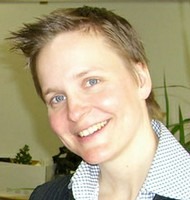 Kristin Hayden, Founder and Executive Director of OneWorld Now! spoke to a gathering at Global Washington’s Salaam Maleukum Middle East Networking Event on Wednesday, September 16th. The event was part of Global Washington’s ongoing series of Global Socials the 3rd Wednesday of each month that convene development organizations around geographic regions or issue areas. Kristin spoke about how she created OneWorld Now! and talked about her separate but related project, One World 2011.
Kristin Hayden, Founder and Executive Director of OneWorld Now! spoke to a gathering at Global Washington’s Salaam Maleukum Middle East Networking Event on Wednesday, September 16th. The event was part of Global Washington’s ongoing series of Global Socials the 3rd Wednesday of each month that convene development organizations around geographic regions or issue areas. Kristin spoke about how she created OneWorld Now! and talked about her separate but related project, One World 2011.
Kristin came upon the idea of starting OneWorld Now! in 2002 when she returned to the United States after living and working abroad. She recalled that at the age of 15, she went on a student exchange to South Africa when the country was still under Apartheid. The sojourn was a life changing experience for her and led to a passion for learning languages. Upon her return to the United States in 2002, after living overseas, Kristin was disturbed by the reaction in the United States to the events of 9/11. Witnessing the fear and stereotypes that Americans showed towards Arabs and Muslims, Kristin started OneWorld Now!, a program that provides language and leadership training as well as study abroad opportunities for low-income and minority youth.
The program of OneWorld Now!, Kristin pointed out, deliberately focuses on Arabic and Chinese because these languages are strategically important but not typically offered in the public schools. Students also learn leadership by digging into underlying beliefs and stereotypes. They commit to a year of the program, and then go abroad in summer to work on their language skills, participate in community service, and live with families. Currently students go to Morocco, Egypt, and Jordan. Upon their return they participate in a give-back project.
Proud of the impact the program is having on its participants, Kristin explained that 100% of the youth go on to college. OneWorld Now! serves 150 youth per year and has arranged for students to receive credit for the program through Seattle Public Schools. In the last year and a half, Kristin and her mentor, Bob Walsh, have taken the philosophy behind OneWorld Now! and the experience of the successful 1990 Goodwill Games to develop an important and large scale project called One World 2011.
Bob and Kristin are planning a month-long “mega-event” that will open in Seattle on September 11, 2011. The goal of One World 2011 is to build a bridge between the U.S. and the Muslim world. The extensive program will include a press conference on the Middle East, athletic events, a health summit, a trade bazaar, music, art, and film festivals, and a large youth exchange program with countries from the Muslim world. Funding and support for the program are beginning to take form.
The U.S. government has shown support for the project along with Farah Pandith, the U.S. special representative to the Muslim world, and the Washington State Congressional delegation. Kristin is hoping to have Michelle Obama, Melinda Gates, and Queen Rania of Jordan act as co-chairs of the event. Seed funding has been provided by the Gates Foundation through the Tides Foundation and from philanthropist, George Russell.
Q&A
At a Q&A following her presentation, Kristin was asked about the organizations she works with to provide exchange programs abroad. She explained that she arranges exchanges through American Field Service for Egypt, AMI for Morocco, and the Jordan River Foundation for Jordan.
When asked about further funding for One World 2011, she said that funding is being sought from corporations such as Nike, foundations, and organizations in the Middle East.
In further discussion about world language education in the U.S., Kristin pointed out that 1% of U.S. high school students study abroad, less than 1% study Arabic, and less than 3% study Chinese. It was pointed out that Startalk is an organization that provides funding for their summer language programs for Arabic and Chinese.
Kristin was also asked about challenges she faces with planning One World 2011. She feels that visas are frequently a problem and that visa complications are discouraging wealthy business people from the Arab world from coming to the United States. She explained that they hope to push the visa issue in general with One World 2011.
Kristin also pointed out that many Arab and Muslim nations feel that they have lost a generation, because young people are being educated abroad. She added that 60% of the Arab and Muslim world population is under the age of 25. This, she explained, means a large number of people who don’t have positive feelings about the U.S. and OneWorld 2011 aims to change that!
Some of the other organizations represented at the Global Social who are also doing work or share an interest in the Middle East include:
International Organization of Folk Art, http://www.iovworld.org
Middle Eastern Legal Association of Washington, http://www.melegal.org
Associates in Cultural Exchange, www.cultural.org
EarthCorps, http://www.earthcorps.org
Arab Center of Washington, http://www.arabcenter.net/
Crooked Trails, http://www.crookedtrails.com
Growing with Books, http://www.growingwithbooks.org/
Brown Eyes Gallery, http://www.browneyesgallery.com/
Surge Consulting
Senators Seek Global Sector’s Input
Posted on September 10, 2009.
“Washington state Senators Maria Cantwell and Patty Murray think the state’s burgeoning global health and development sector could be a good source of new ideas for improving the nation’s foreign aid and trade policies. The two Democrats have asked the association Global Washington to write policy recommendation papers on trade and aid, as well as education and private-public partnerships”
Senators Seek Global Sector’s Input
Puget Sound Business Journal | Posted by Clay Holtzman | September 10, 2009
Global Social Event: East & Southeast Asia
Posted on August 28, 2009.
Jackie Peterson reports on our August 19th event
 This month’s Global Social focused on East and Southeast Asia as well as China. Ketty Loeb from Wokai was invited to present briefly on Wokai’s micro-credit work and poverty in China.
This month’s Global Social focused on East and Southeast Asia as well as China. Ketty Loeb from Wokai was invited to present briefly on Wokai’s micro-credit work and poverty in China.
Currently the poverty rate is 8-10%, Loeb notes, and there is a growing divide between rural and urban populations. According to Loeb 75% of the people in China do not have access to credit. In China, it is not legal to loan to individuals so micro-finance organizations serve as brokers or intermediaries in that process, using a model somewhat similar to what KIVA does. The micro-finance organizations in China are the entities to which outsiders can loan money and the organization matches funding with individuals. The microfinance organizations also determine the loan rate.
The process has a number of challenges. Those who loan will not be repaid in the traditional sense of recouping their money. The loans are repaid to the micro-finance organization but the principle amount is then re-invested so the loans should be considered more as a donation rather than a traditional loan. It is also a challenge to find reputable micro-financing organizations using sound training practices, transparency in lending and solid risk analysis measures. Wokai has, to-date, found about 100 reputable organizations and continues to look for more.
There is also a general lack of a philanthropic culture directed toward those outside the family in China. Donations or giving in the way thought normal in the US is illegal in China but there appears to be some shifts beginning in cultural norms around that philosophy. There is also some hope for banking reforms and that the high demand for credit may encourage opportunities.
As is true in many areas, the greatest poverty is in the rural areas and isolation and poor infrastructure contribute to the fact that less help gets to those areas and people.
About 98% of the money Wokai loans is to women who live on less than $1.00/day and they use that money for things like agricultural pursuits and purchasing animals etc. in rural areas and sales of textiles and establishment of produce stands in more urban locations. The average loan is about $350.
Some of the other organizations represented at the Global Social who are also doing work in East and Central Asia and China include:
Lutheran Community Services, www.refugeechildren.net
Bridges to Understanding, www.bridgesweb.org
Peace Winds America, www.peacewindsamerica.org
Women’s Enterprises International, www.womententerprises.org
The China Club of Seattle, laoBao206@aol.com
Sankara Eye Foundation, www.giftofvision.org
Breakthrough Partners, www.breakthroughpartners.org
Prosthetics Outreach Foundation, www.pofsea.org
Crooked Trails, www.crookedtrails.com
Antioch University, www.antiochseattle.edu/academics/creativechange/index.html
Representing Global Washington was Bookda Gheisar, Executive Director. Gheisar encouraged attendees to access the Global Washington website, www.globalwa.org, to register their organizations and post upcoming events. Gheisar also spoke to the benefits of membership in the organization.
Gheisar solicited input from the group as to how Global Washington can help facilitate communication between various groups doing work overseas and noted that the first annual convention for Global Washington members will occur in December of 2009.
August 2009 Newsletter
Posted on August 27, 2009.
Welcome to the August 2009 issue of the Global Washington newsletter. If you would like to contact us directly, please email us.
IN THIS ISSUE
Note from our Executive Director
 Greetings-
Greetings-
I am tremendously excited to announce that we have confirmed Nicholas Kristof as our keynote speaker for the Global Washington Annual Conference to be held Monday, December 7 on the Microsoft Campus in Redmond. In their new book, Half the Sky: Turning Oppression into Opportunity for Women Worldwide, Nicholas D. Kristof and Sheryl WuDunn share stories of women’s struggles in the face of poverty . Half the Sky brings attention to the fact that women make up more than 60 percent of the poorest people on earth, yet hold the potential to change the world as we know it.
If you have not seen last Sunday’s New York times special section on women and development, be sure to review some of the articles.
I really look forward to seeing you at the conference. Over the next two months we will continue to send you links to Nick Kristof’s writings and thinking to help us all prepare for a very fruitful conversation with him. We will send an announcement out to let you know when registration for the conference has opened in mid-September.
Our goal for this conference is to motivate and activate the private, non-profit and philanthropic sectors jointly to build the next chapter of our common global future. Together, we will generate specific goals to advance global development in Washington through collaboration between the private, non-profit, government and academic sectors. I hope to see you all there.
In unity,
Bookda Gheisar, Executive Director
top
Global Washington Mourns the Passing of a Founder
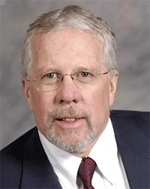 Global Washington is sad to announce the death of one of it’s founders. Lance LeLoup, who retired in June after a distinguished career in political science research, teaching and administration at WSU, died Thursday, July 23, at his home on Whidbey Island. He was 60 and had been suffering from cancer.
Global Washington is sad to announce the death of one of it’s founders. Lance LeLoup, who retired in June after a distinguished career in political science research, teaching and administration at WSU, died Thursday, July 23, at his home on Whidbey Island. He was 60 and had been suffering from cancer.
Lance T. LeLoup was the Vice Provost of International Programs and Edward R. Meyer Distinguished Professor of Political Science at Washington State University. In 2007, he received the Aaron Wildavsky Lifetime Achievement award for Research on Public Budgeting from the Association for Budgeting and Financial management, the largest section of the American Society for Public Administration. Dr. LeLoup received a B.A. from Georgetown University with honors and M.A. and Ph.D. from the Ohio State University. He was at WSU since 1996 where he previously served as Chair of the Department of Political Science and Director of the Thomas Foley Institute. He is the author of more than a dozen books and sixty articles on politics and public policy in the U.S. and Europe particularly in the areas of legislative institutions, executive-legislative relations, and public budgeting. Professor LeLoup had faculty appointments and lived in England, France, Hungary, and Slovenia, and lectured around the world.
In 2007 Dr. Leloup joined other academics in recognizing the value of collaboration and help found Global Washington and worked on the development of the Global Learning Goals. He served on the global education advisory committee and the steering committee of Global Washington in the last two years and was instrumental in the development of the organization.
We will miss Lance deeply. Please click here to read more about Dr. Leloup’s life.
top
Spotlight: Global Washington Premiering New Website!

Global Washington is putting the final touches on a fantastic re-design of our website, which we’ll officially be launching next week. One of the new and exciting features on the site is an enhanced search function for our Washington state directory of global development, which allows users to drill down to the finer points of the issues and regions they care about when seeking out organizations, academic centers and businesses with a similar focus. In addition, you can explore the directory using our new interactive map function, and click in to your country of interest to see who is working there.
Later next month we’ll also be rolling out Global WA Connects, which will serve as the primary online meeting place for discussion and collaboration for the global development community. We’re excited to enhance our role as a convening place for all the great work you are doing and look forward to new ways to help you connect.
top
Featured Organization: Rural Development Institute (RDI)
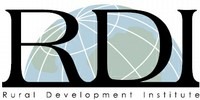 “Hope,” according to Roy Prosterman, Rural Development Institute’s founder, “is the catalyst from which all sustainable economic development and poverty reduction flows.” And for the rural poor, RDI sees land as hope. Secure access to land, even a tiny plot, means a poor person can help feed herself. It means she has the incentive to develop the land, to add a greenhouse, to find a way to irrigate it, if needed, to use sustainable fertilizers. It means she has a chance to take care of and educate her children. It means she has a place or an address in the world where she can be found. It means she can start a small business. It means she has status in the community. Most critically it means she sees herself as a person with options and with hope in the future.
“Hope,” according to Roy Prosterman, Rural Development Institute’s founder, “is the catalyst from which all sustainable economic development and poverty reduction flows.” And for the rural poor, RDI sees land as hope. Secure access to land, even a tiny plot, means a poor person can help feed herself. It means she has the incentive to develop the land, to add a greenhouse, to find a way to irrigate it, if needed, to use sustainable fertilizers. It means she has a chance to take care of and educate her children. It means she has a place or an address in the world where she can be found. It means she can start a small business. It means she has status in the community. Most critically it means she sees herself as a person with options and with hope in the future.
400 million people now have access to land rights as a result of RDI’s efforts, working in partnerships with governments and many organizations. That’s one out of every 16 people on the planet touched by RDI! Of course, not all of the four hundred million have been able to take advantage of the changes. The road to successful implantation stretches far into the future. But still, what a story! This work is not dropping off a bag of rice on the edge of a village, though that work is important. Securing complicated legal changes require governments to buck vested interests and people to change hundreds of years of self perception, as well as years of patience and persistence.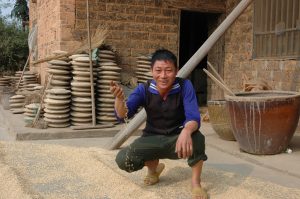
For the past 40 of those years RDI has been working with governments and NGOs across the developing world advocating land reform as the key change needed to promote economic development and social justice. Essentially a law firm whose clients are developing countries and NGOs, RDI advises governments about how to reform land laws so that the poor have the means to ensure their own future and thus have a stake in the future of the country. Today, with a home office in Seattle, RDI has a staff of 11 attorneys, with a total staff of 52, and field offices in Beijing, China; Bangalore, India; Hyderabad, India; Kolkata, India and Bhubaneshwar, India. With support from donors such as the Bill & Melinda Gates Foundation, Omidyar Network and consultancies for clients such as the World Bank and USAID, RDI is active in seven to ten countries at any one time.
Roy Prosterman, a professor at the University of Washington School of Law, started working on land reform in South Vietnam. Between 1970 and 1973 his famous Land to the Tiller project helped over a million tenant farmers gain control over their land. Viet Cong recruiting plummeted in the area where the project was operating. Moreover, after the war, the Vietnamese government adopted Land to the Tiller principles to reform land ownership rather than collectivist principles. Rising from the ashes of the Land to the Tiller program, RDI was heavily involved in former Soviet block countries after the fall of the Soviet Union, advising new governments about what to do with the collective farms. RDI says that most of those efforts have been successfully implemented.
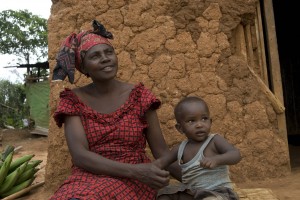 Usually, RDI is invited either by the government, an NGO or a government agency such as USAID to provide analysis about how to change a particular country’s land law. Usually RDI’s funding comes either from contracts with NGOs or government agencies in the developed world. At other times, RDI does research and goes into a country on its own with the help of private donors. In all instances finding a person in the government willing to sponsor securing the legal changes is the critical variable that determines whether the project can get off the ground or fail.
Usually, RDI is invited either by the government, an NGO or a government agency such as USAID to provide analysis about how to change a particular country’s land law. Usually RDI’s funding comes either from contracts with NGOs or government agencies in the developed world. At other times, RDI does research and goes into a country on its own with the help of private donors. In all instances finding a person in the government willing to sponsor securing the legal changes is the critical variable that determines whether the project can get off the ground or fail.
The 1998 land reform law passed by the Chinese government, with the advice of RDI, which gave rural families 30 year documented right to lands lead to skyrocking agricultural production and reduced China’s rural poverty index by 50%. Even though only about 40% of China’s eligible rural poor had actually received contracts by 2005, those efforts removed China from the list of major contributors to the world’s poverty index. By 2005, 46% of Africans and 30% of South Asians lived on less than a dollar a day, while in China the index decreased from 33% to less than 17%, a testament to the Chinese government’s efforts to reduce rural poverty by taking land reform and other methods of development seriously.
In Rwanda, RDI is developing regulations, writing pamphlets and putting on plays that explain citizens’ rights under the new land law rights or that demonstrate the processes and evidentiary requirements for resolving land disputes. Taking gender issues into consideration, RDI is working with the Rwandan Women’s Law and Policy Task Force, an umbrella NGO that advocates on behalf of women’s rights. In Burundi, RDI is making recommendations to the government on ways to avoid the small amount of available land from flowing into the hands of the wealthy elite. In 2007 Angola, RDI completed a major study of how a land dispute resolution mechanism and formalized land rights could assist in the reconciliation of Angola. Unfortunately, RDI has so far been unable to find the required partner in the government to conduct a pilot program there.
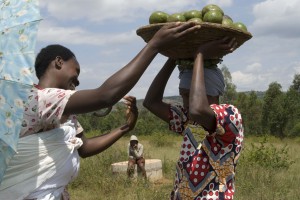 Major reform need not involve a lot of land. In India, RDI has worked with the government in four states to pioneer distribution very small plots — as small as 1/10th of an acre, or 5000 square feet, that’s the size of a normal Seattle city lot — to the rural poor of through grants and purchase programs. What good is micro-owning? On such a plot, a former bonded laborer, who once worked on his master’s lands for only his food, a primitive hut and $16 a year in return, can grow 90% of his family’s vegetable and fruit needs. From what food the family doesn’t eat themselves, they can earn $133 a year and additional $67 a year from raising and selling chickens and eggs. They can grow 42 teak trees, which, when mature, ten years from now, will sell for around $556 each or a total sum of $23,333, an astonishing sum someone who was an indentured servant just a few years before.
Major reform need not involve a lot of land. In India, RDI has worked with the government in four states to pioneer distribution very small plots — as small as 1/10th of an acre, or 5000 square feet, that’s the size of a normal Seattle city lot — to the rural poor of through grants and purchase programs. What good is micro-owning? On such a plot, a former bonded laborer, who once worked on his master’s lands for only his food, a primitive hut and $16 a year in return, can grow 90% of his family’s vegetable and fruit needs. From what food the family doesn’t eat themselves, they can earn $133 a year and additional $67 a year from raising and selling chickens and eggs. They can grow 42 teak trees, which, when mature, ten years from now, will sell for around $556 each or a total sum of $23,333, an astonishing sum someone who was an indentured servant just a few years before.
Major reform does not require expropriation of private lands. In fact, RDI finds such heavy handed methods to be counterproductive. Better to enter into market solutions, buy the land and avoid the controversy. In India, the plots were purchased by the government for as little as $200 apiece.
What major reform does require are years of patient advice, focused implementation and the understanding that every country is different. What was successful in the last country RDI worked in might not work in the next one. But forty years of effort, some successful, others not, means that the organization has history in its own files. RDI is turning those files into a major new undertaking.
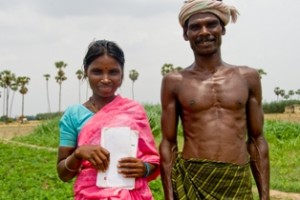 Scheduled to open in October, 2009, RDI will launch the Global Center for Women’s Land Rights. The Center will operate an e-library that will catalogue developing country laws that affect women’s land rights. Those materials will be available 24/7 on its website, providing an invaluable and free resource for land reform efforts across the world and bringing together the global community around the issue of secure land rights for women and girls. RDI understands that women are central to successful land reform and poverty reduction. Upwards of eighty percent of rural land is tilled by women, but less than five percent of this land is owned or controlled by the women who till it. Based in Seattle, the Center will be a source for training and advocacy, provide scholarships to bring people from poor countries to the Seattle (based in part on iLeap’s visiting scholar program which was described in the June Global Washington Newsletter) and fellowships to send scholars see how land reform really works in country.
Scheduled to open in October, 2009, RDI will launch the Global Center for Women’s Land Rights. The Center will operate an e-library that will catalogue developing country laws that affect women’s land rights. Those materials will be available 24/7 on its website, providing an invaluable and free resource for land reform efforts across the world and bringing together the global community around the issue of secure land rights for women and girls. RDI understands that women are central to successful land reform and poverty reduction. Upwards of eighty percent of rural land is tilled by women, but less than five percent of this land is owned or controlled by the women who till it. Based in Seattle, the Center will be a source for training and advocacy, provide scholarships to bring people from poor countries to the Seattle (based in part on iLeap’s visiting scholar program which was described in the June Global Washington Newsletter) and fellowships to send scholars see how land reform really works in country.
40 years of work, in 45 countries, for 400,000,000 rewards is an astonishingly successful.
top
Changemaker: Marla Smith-Nilson, Bringing the Reality of Dirty Water Back Home
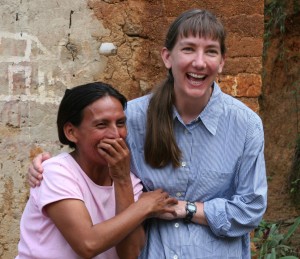 A voice for community-based water projects across the developing world, Marla Smith-Nilson is the Executive Director of Seattle-based Water 1st. Water 1st directs its annual $1 million fundraising prowess to water projects that are planned and operated by the people they serve. Since 2005, Water 1st has provided funding for non-profits who have built more than 251 projects that are benefiting over 30,000 people.
A voice for community-based water projects across the developing world, Marla Smith-Nilson is the Executive Director of Seattle-based Water 1st. Water 1st directs its annual $1 million fundraising prowess to water projects that are planned and operated by the people they serve. Since 2005, Water 1st has provided funding for non-profits who have built more than 251 projects that are benefiting over 30,000 people.
Although Marla is a civil engineer, Water 1st does not perform the engineering design for the water projects, but they do provide technical oversight and help to introduce partners to new technology they may not have had an opportunity to see. And although she is a community organizer, Water 1st does not organize water projects in the communities it serves.
Instead, Water 1st’s mission is to fund local organizations’ efforts to educate their own communities in sustainable acquisition and use of safe water and to educate people in the developed world about the need to help fund these local efforts. Water 1st doesn’t swoop in, build a project and leave. For these reasons, Water 1st projects are not likely to result in a million dollar water project lying inoperable for lack of a part, or unused latrines that no one was ever taught how to use, or water that is wasted because no one is responsible to pay for it.
Stepping back to be supportive rather than directive doesn’t mean that Water 1st doesn’t require stiff standards. More on that later. First, the story that led Marla to this work.
As a child of American school teachers living in Arizona, Marla Smith-Nilson spent her summers camping and fishing just across the border in Mexico. One of her earliest memories is of questioning her mother why Mexican children her own age were carrying water to their homes from a stream. Her mother pointed to the luck of her birth and told her she should be thankful that she was not one of those children. Over the years the comment became less of an explanation than a challenge. Some things there were no solutions for, but this seemed so easy. Just simple engineering: a pipe and a water source. 
Growing up in water-parched Arizona also has a way of keeping water issues personal. In college at the University of Arizona and in graduate school at UNC at Chapel Hill, Marla turned to civil engineering expecting it to become her vocation. As a graduate student working on a civil engineering project in a village in Honduras in the early 90’s, she learned about another locally-based and staffed non-profit trying to bring clean water to the village. It only needed $5,000 to take off. It seemed like a sum she could raise. The project wasn’t likely to happen if she didn’t do it, so she agreed to try. As she prevailed upon her friends, family, fellow students and faculty to give money, she was learning her first lesson in how to effectively deal with the water and sanitation crisis in developing communities.
Local NGOs have access to civil engineers. They already have the knowledge to bring clean water everywhere they work. The local NGOs already have the trust of the community and the personal contracts to make such a project work. What they lack is not technical expertise, but a world that knows how few people in developing countries have access to that simple pipe and water resource and how simple the solutions would be if the money were there. It was a world that could be mobilized if it could be educated.
Marla became one of the original founders of Water Partners International which today has a formidable budget of 3-4 million dollars. Based in three cities reflecting the dispersion of the founding students and faculty upon graduation, in its early days it had a similar focus on using local NGOs to organize water projects in developing communities. But as that organization became bigger and started receiving money from government and large foundations, Marla felt it was starting to lose its focus on building a grassroots base of support for its cause. After trying to change the focus from within, Marla and the rest of the staff from the Seattle office left the organization and created Water 1st in 2005.
 Today Water 1st’s projects in Ethiopia, India, Bangladesh and Honduras appear as models of well-run community-based water systems. In each case the community was involved in helping identify the problem and coming up solutions. Each community was also required to bear a portion of the capital and all of the operating costs of the project. All the projects were managed by a local board that coordinated with the NGO or local government.
Today Water 1st’s projects in Ethiopia, India, Bangladesh and Honduras appear as models of well-run community-based water systems. In each case the community was involved in helping identify the problem and coming up solutions. Each community was also required to bear a portion of the capital and all of the operating costs of the project. All the projects were managed by a local board that coordinated with the NGO or local government.
The fruits of this organizing extend beyond the water projects to other problems the communities now realize they can solve. The communities of Ilamu Muja, Ethiopia and San Gabriel, Honduras, beneficiaries of Water 1st funding for their water projects, have now built elementary schools. People living in the slums of Dhaka, who used to buy water from expensive, illegal private water vendors, now have more money for their families. Women in India have formed local savings groups to take out small loans and start small businesses.
Water 1st’s vision states that “providing people with safe water is the first step toward breaking the cycle of poverty.” The community-based organizations are moving on to the next steps; Water 1st is learning too. It is also introducing metering into its projects in Honduras and expects to bring its NGOs from other countries together so they can learn from each other. Water 1st expects to move on to new partners as well in 2010 and 2011.
Waterworks fundraising efforts include Water 1st tours of communities that are either developing water projects or in need of doing so. It has an annual dinner in November for its majors donors with some corporate sponsorship, but 75% of its donors are individuals. Carry 5 campaigns, a variation on walkathons, are being virally organized over the internet by supporters across the country. Local press accounts of families carrying a five-gallon container a mile or two in the sun drive home the problem.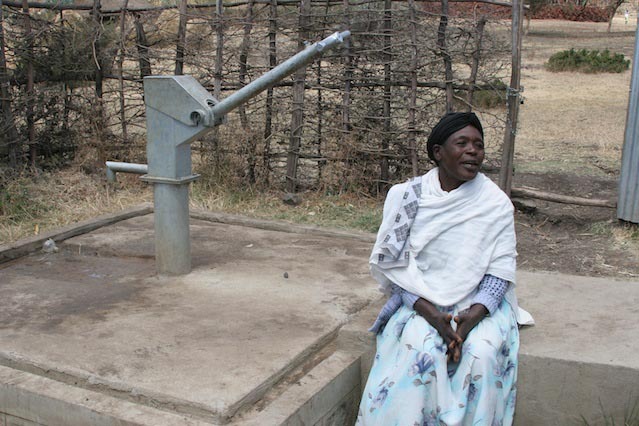
As for accountability, besides educating the developed world and raising funds, Marla’s other principal role is oversight. Water 1st audits both the local NGO and the individual water project committees at least annually inspecting their books, their physical infrastructure and the effectiveness of their local management committees.
It’s been a long way from that little girl’s wonderment at seeing children forced to carrying water. There’s still a long way to go. But thanks to Marla, the local non-profits with whom Water 1st collaborates, the communities that step up to help themselves, and the donors who learn the real value of their contributions, there is a process that works.
top
Global Entertainment: Global Outlaws, Crime, Money, and Power in the Contemporary World
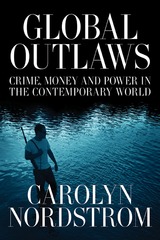 Global Outlaws, Crime, Money and Power in the Contemporary World by Carolyn Nordstrom
Global Outlaws, Crime, Money and Power in the Contemporary World by Carolyn Nordstrom
What makes a smuggler, a smuggler? Taxes. Otherwise a smuggler is just a trader. Whether the purpose of the tax is to raise money, discourage competition or control the trafficking in dangerous products, the underlying activity is just commerce. That, at least, is the ethic among the traders. The line between the legal and the illegal, or what Nordstrom calls the il/legal is frequently hard to discern. In the face of people’s lives, arguments from morality are as likely to be shaken as confirmed. Trafficking in young children may retain its universal abhorrence, but recreational drugs? They are chosen. Counterfeit pharmaceuticals? Sometimes they are generic reproductions costing a fraction of the name brand and disparately needed in a conflict zone. Food products? Hard to oppose when people are starving.
NGOs, government entities and businesses operating in developing countries will recognize much of what Nordstrom describes. The complicity of governments and “straight” businesses in the developed world might be a little less familiar. Nordstrom travels through Africa, Asia, Europe and the United States to tell this story.
Two-thirds of all trade moves outside legal channels and ninety percent of it leaks through the shipping industry, according to both the police and import/export CEOs quoted by Nordstrom. One can argue that this massive undeclared trade deprives countries, developing and developed alike, of the funds they need to educate, feed and house their people. It also deprives them of the funds they need to wage wars and give tax breaks to the wealthy. For the most part the author doesn’t take sides, although she ultimately does admit to smuggled pharmaceuticals being better than no pharmaceuticals at all. Her book is descriptive, not prescriptive.
Nordstrom is an anthropologist and her point of view is observation and interview, not statistics. Her book consists of 20 relatively short chapters that demonstrate how il/legal trade occurs, starting with the lowliest trader in the chain illustrating how informal economies work on the ground and ending with financial officers of vast international trading giants discussing the necessity of their involvement in the il/legal trade, as well as the strange priorities of global law enforcement. She calls her approach “an expanding funnel.”
The book begins with the story of an orphan who sells cigarettes on the street. He buys them from a small shopkeeper who also sells electronic goods and name brand drugs in the front of his store and weapons in the back. The trader’s goods come across borders through free trade zones, unstaffed border crossings, or slipped in among the bags of rice sent by an aid agency or among the weapons ordered by the local military. Electronic goods enter the continent at ports in containers under shipping documents that declare the contents to be one of the metals in the finished product. The name brand drugs, real or counterfeit, and weapons are brought in through fishing vessels that meet ships outside territorial waters. At each step Nordstrom describes how the sales occur, the nature of the relationship between the seller and the buyer, how the traders see themselves as well as how and why the entities of the state either cannot, or do not, intervene.
Nordstrom explains why inspection at ports doesn’t and isn’t likely to happen in the future. The length of time it takes to remove one container from a ship, inspect it and repackage it is six hours; 24,657 containers a day are routed through the Port of Rotterdam. Delays in getting those goods to market give surrounding ports a competitive edge and result in harangues from both companies anxious for the delivery of their goods and government officials anxious to keep the anxious CEOs from becoming more anxious. Shipping agents in London casually discuss with Nordstrom the going rate for smuggled goods which they would happy to arrange for her should she wish, and ships crews explain how they routinely take a cut of the ship’s costs, unbeknownst to the owner.
Tax avoidance in developed nations gets equal time. The chapter on how easy it is for a business to buy a bank, a name change and a second citizenship in order to launder money with impunity is truly eye-opening. There are websites that offer all these activities at listed prices. (If Homeland Security is truly watching our internet usage one hopes they are focusing on these sites).
No solutions are presented, nor is there an implication that a solution is needed. If there is an agenda though, it is her desire to show how much more complicated the situation is than most of us know. The book ends with the intersection of smuggling and security. If by this time the reader has begun to question whether international efforts at altering this global deception are worth it, she leaves her reader with the following caveat. Once you’ve figure out how the least dangerous goods are routinely smuggled into a country, say counterfeit Barbie dolls, you’ve figured out how the most dangerous goods can be.
top
Announcements
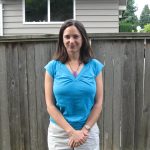 New Staff at Global Washington: Global Washington welcomes the newest addition to the team, Danielle Ellingston, as our Global Policy Coordinator. Danielle most recently worked for Congressional Research Service in Washington, DC, where she provided research and analysis to members of Congress and their staffs. Danielle’s research focused on issues in international trade and development such as trade capacity building and the African Growth and Opportunity Act. In addition, she completed rotations at the U.S. Agency for International Development West Africa Regional Program office and the U.S. Trade Representative’s Office for Trade Capacity Building. Previously, Danielle was a Peace Corps Volunteer in Ghana working as a small business advisor with pineapple farmers. Danielle earned her MA from the Johns Hopkins School of Advanced International Studies, in Washington, DC in 2003. Danielle originally hails from Brooklyn, NY and is a newcomer to the Seattle area where she enjoys rowing and hiking with her family.
New Staff at Global Washington: Global Washington welcomes the newest addition to the team, Danielle Ellingston, as our Global Policy Coordinator. Danielle most recently worked for Congressional Research Service in Washington, DC, where she provided research and analysis to members of Congress and their staffs. Danielle’s research focused on issues in international trade and development such as trade capacity building and the African Growth and Opportunity Act. In addition, she completed rotations at the U.S. Agency for International Development West Africa Regional Program office and the U.S. Trade Representative’s Office for Trade Capacity Building. Previously, Danielle was a Peace Corps Volunteer in Ghana working as a small business advisor with pineapple farmers. Danielle earned her MA from the Johns Hopkins School of Advanced International Studies, in Washington, DC in 2003. Danielle originally hails from Brooklyn, NY and is a newcomer to the Seattle area where she enjoys rowing and hiking with her family.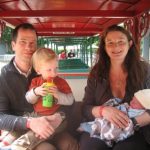
- New Addition to the Global WA Family! We are thrilled to announce the birth of Frederick Sargent Barr, born August 3rd. He arrived at 9:15 am after 3 1/2 hours labor and was 21 inches long, 8lbs 9oz. Frederick joins big bro Walter, 22 months, mom Katherine (of Global WA fame), dad Jonathan and kitty Hugo. Everyone is happy, healthy and adjusting to life together. Congratulations, Barr family!
- New Member Benefit – GrantStation Insider: Global Washington, in partnership with GrantStation, is now distributing a monthly e-newsletter to members that focuses on upcoming charitable giving programs and U.S. Federal agency grant deadlines for organizations working internationally. Current Global Washington members will see their first free GrantStation e-newsletter next week. You can read more about this fantastic benefit at the GrantStation website and check out Global WA’s other member benefits by clicking here.
 PATH Receives the Conrad Hilton Humanitarian Prize: Global Washington extends hearty congratulations to member organization PATH for being the chosen recipient of the 2009 Conrad Hilton Humanitarian Prize, the world’s largest humanitarian award, presented annually to a nonprofit organization judged to have made exemplary and extraordinary contributions toward alleviating human suffering. The Hilton Foundation praised PATH’s work creating effective health technologies for the developing world. Read more…
PATH Receives the Conrad Hilton Humanitarian Prize: Global Washington extends hearty congratulations to member organization PATH for being the chosen recipient of the 2009 Conrad Hilton Humanitarian Prize, the world’s largest humanitarian award, presented annually to a nonprofit organization judged to have made exemplary and extraordinary contributions toward alleviating human suffering. The Hilton Foundation praised PATH’s work creating effective health technologies for the developing world. Read more…
 iLeap Invites Global WA Members to Participate in 2010 Fellowship Program: Due to the unique way in which the iLEAP Fellowship promotes meaningful, long-term collaboration among Global Washington members, iLeap: The Center for Critical Service is extending an exclusive invitation, in advance of their regular application period, for Global WA members to nominate and/or sponsor a Fellow on their 2010 International Fellowship program. Please click here to read the letter of invitation.
iLeap Invites Global WA Members to Participate in 2010 Fellowship Program: Due to the unique way in which the iLEAP Fellowship promotes meaningful, long-term collaboration among Global Washington members, iLeap: The Center for Critical Service is extending an exclusive invitation, in advance of their regular application period, for Global WA members to nominate and/or sponsor a Fellow on their 2010 International Fellowship program. Please click here to read the letter of invitation.
 Foster School Announces 2010 Global Social Entrepreneurship Competition (GSEC): The University of Washington Global Business Center at the Foster School of Business is pleased to announce the 2010 Global Social Entrepreneurship Competition (GSEC). GSEC is a business plan competition in which students from around the globe—and across fields of study—find creative, commercially sustainable solutions to problems of poverty in the developing world. As a leading-edge initiative at the University of Washington, GSEC seeks to engage creative minds across disciplines to encourage bolder and less conventional business solutions to global poverty. GSEC also engages individuals as mentors, judges, and sponsors; detailed information is available on the GSEC website.
Foster School Announces 2010 Global Social Entrepreneurship Competition (GSEC): The University of Washington Global Business Center at the Foster School of Business is pleased to announce the 2010 Global Social Entrepreneurship Competition (GSEC). GSEC is a business plan competition in which students from around the globe—and across fields of study—find creative, commercially sustainable solutions to problems of poverty in the developing world. As a leading-edge initiative at the University of Washington, GSEC seeks to engage creative minds across disciplines to encourage bolder and less conventional business solutions to global poverty. GSEC also engages individuals as mentors, judges, and sponsors; detailed information is available on the GSEC website.
 Global Partnerships Continues to Flourish: Global WA member organization Global Partnerships recently received a $180,000 capacity-building grant from the M. J. Murdock Charitable Trust of Vancouver, Washington, to support their social investment fund strategy—a strategy that’s helped GP increase their impact significantly in recent years. Additionally, Global Partnerships joined other industry leaders to announce the launch of an innovative company, MFX Solutions, which addresses one of microfinance’s most pressing challenges: Currency risk. As an early leader in this effort, GP is excited about the potential of MFX to allow for more loans in local currency in developing countries, which will benefit the people most vulnerable to currency risk: microfinance borrowers. Read more…
Global Partnerships Continues to Flourish: Global WA member organization Global Partnerships recently received a $180,000 capacity-building grant from the M. J. Murdock Charitable Trust of Vancouver, Washington, to support their social investment fund strategy—a strategy that’s helped GP increase their impact significantly in recent years. Additionally, Global Partnerships joined other industry leaders to announce the launch of an innovative company, MFX Solutions, which addresses one of microfinance’s most pressing challenges: Currency risk. As an early leader in this effort, GP is excited about the potential of MFX to allow for more loans in local currency in developing countries, which will benefit the people most vulnerable to currency risk: microfinance borrowers. Read more…
top
Global Washington Upcoming Events
top
Other Upcoming Events
Click here to see a full list of international development events on the Global Washington’s calendar. Upcoming events include:
Please submit your events to our calendar!
top
Global Sector, American Recovery
Posted on August 26, 2009.
“About 45 people attended a stimulus information session organized by Global Washington, a membership group representing the state’s growing global health and development sector. Participants pointed out that their work abroad limits their ability to access the federal program, which is intended to preserve and create jobs for Americans… Satran advised applying for funds in conjunction with other groups, and said that proposals would have better odds if they address multiple stimulus priorities like improving health care by also expanding broadband internet access to low-income areas.”
Global Sector, American Recovery
Puget Sound Business Journal | Posted by Clay Holtzman | August 26, 2009
Global Social Event: Convening Central & South Asia
Global Washington intern Lindsay Jackson reports on our July 15th event
This month’s Global Social event focused on Central & South Asia, confronting the issues of environment, poverty, education & health. The event consisted of a large variety of representatives from various global development organizations, which included; individual representatives, The National Council for Eurasian & East European Research, EarthCorps, “Journey with an Afghan School” Ayni Education International, Jackson School of International Studies of University of Washington, International Organization of Folk Art, University of Washington (Bothell & Seattle), Health Leadership, Wokai, Seattle International Foundation, and Global Washington.
The event opened up and began with an introduction from Bookda Ghesiar, the Executive Director of Global Washington. She introduced herself and explained what Global Washington was all about, its background and future goals. Prologues then led to the Bookda introducing Ethan Casey, the event’s primary speaker on Pakistan.
Ethan Casey is the most well known for his works & authorship of the book Alive and Well in Pakistan: A Human Journey in a Dangerous Time (2004). Ethan is also a frequent speaker on Pakistan at venues ranging from universities, The Pakistan High Commission in London, and locally around Seattle where he is from. Ethan has continued to use his position as an American traveler and author with 15 years’ exposure to Pakistan to help foster historical and geographic perspectives, human connections, and conversation between Americans and Pakistanis. Ethan gave a brief explanation of how he became so connected and interested in Pakistan through his early travels, he then brought the Pakistani situations alive by reading quotes and passages from Pakistanis that he had come across in regards to the American mistreatment and unawareness of Pakistanis. Ethan’s future plans consist of a second book to be published in 2010 that will be a follow up of Alive and Well recapping and covering the recent past five years in Pakistan since the publication of Alive and Well. For updates and further discussion Ethan regularly blogs at www.aliveandwellinpakistan.com and writes a column for the Books & Authors section of the Pakistani newspaper Dawn.
Ethan Casey’s stories quickly and successfully opened the group discussion up between attendees working in the Central and South Asian regions. Some questions that were brought up included;
· What is the best way to assist refugees, such as programs, for people who do not have a lot of experience?
Ethan’s response was to educate your self as much as possible about the situations that have occurred other than just the news, and have better communication and connections to American Pakistanis who are fully socially aware of what is going on. The main stream Americans need to start the conversation (Casey)
· How can you deal with open military?
The response was to find the right community to keep going back (Casey)
· There is great barrier in understanding the impact of the past 10-15 years in Pakistan, so where do you go from there?
The response was to make more and incorporate 1-on-1 human connections, and expose your self to travel writing for literacy expression (Casey)
Questions then began to shift from being focused on Ethan to more open group and responses.
· With the current economy that has caused enormous funding challenges, how can be help support each other?
Response was for NGO’s to partner and collaborate on events rather then individually, where this would benefit everyone and can make different missions be more congruent
· Is there a way to get a better influence over the media, giving it more balance?
Response was that local communities i.e. American Pakistanis, need to get connected to a reporter for more personal stories
Lastly, the remainder of the questions and discussion were directed towards Global Washington and their role.
· What are some recommendations for Global Washington; how do you want them to be able to help?
– Bring vast amounts of individuals working on Global Development in Washington State together to work on the smaller scale and build up
– Help the reservation of different arts and traditional culture, make sure it isn’t looked over
– Have the ability to be able to find and research more organization of massive diversity by having a more comprehensive and enhanced search that is very specific of organizations working internationally- extending international grid of access
– Difficult to connect when overseas, great value to develop an easy accessible way to communicate with others overseas in the same sector
Discussion and conversation was carried on for over an hour, and was closed for individual conversation and networking between various organizations to find out more about each other and make stronger connections for collaboration and support.
June 2009 Newsletter
Welcome to the June 2009 issue of the Global Washington newsletter. If you would like to contact us directly, please email us.
IN THIS ISSUE
- Note from our Executive Director
- Spotlight: Global Washington is Looking for a Policy Coordinator!
- Featured Organization: iLEAP – The Center for Critical Service
- Changemaker: Jeff Keenan, Our Day to End World Poverty
- Global Entertainment: Africa, The Politics of Suffering and Smiling
- Announcements: New Staff at Global Washington; Date Announced for Global Washington Conference; Sign the Foreign Aid Reform Petition
- Global Washington Upcoming Events
- Other Upcoming Events
NOTE FROM OUR EXECUTIVE DIRECTOR
 Greetings-
Greetings-
Global Washington recently celebrated some very exciting news. We received a letter three weeks ago from Senators Maria Cantwell and Patty Murray, congratulating us on our success in bringing together many diverse Washington organizations to work together on the complex issues of global development. The letter also asked for Global Washington’s input concerning real world examples of successful development partnerships, as well as policy recommendations regarding strengthening U.S. foreign assistance and ways to maintain the state’s leadership role in development efforts. We are honored and humbled to have received this request, and look forward to making the most of it.
Global Washington continues to push ahead with research and recommendations regarding critical policy matters. We are currently working with our Principles Committee on recommendations to improve the effectiveness of America’s foreign aid. Although numerous documents, such as the Paris Declaration on Aid Effectiveness, have recommended badly needed reforms in the foreign aid strategies of developed nations, the U.S. continues to lag behind in adopting these. Global Washington will work to help institute such changes, including making aid more transparent, untying aid from onerous procurement requirements, and targeting aid more effectively to best address recipients’ needs and avoid redundancy.
To that end, we are thrilled that the Initiating Foreign Assistance Reform Act of 2009 (H.R. 2139) is making its way through the U.S. House of Representatives. The bill would require the President to adopt a national strategy for foreign aid, defining America’s role in global development and setting objectives for reducing poverty and improving economic growth in developing countries. It also mandates the development of effective mechanisms for monitoring aid effectiveness, and improves transparency by requiring the publication of extensive information regarding U.S. aid flows. Although the bill does not sufficiently address the current outdated legislation governing our foreign aid, the Foreign Assistance Act of 1961, it takes an important first step towards realigning America’s foreign aid strategy and policies with 21st century priorities.
Global Washington also continues to work on the integration of global learning into the university curriculum during a time of budget cuts. Global Washington, in consultation with its Higher Education Committee, has developed a series of Global Learning Goals, which have been approved by 28 university presidents around the state. We are hopeful that these goals, which include improving cross-cultural understanding, increasing the proportion of students who study abroad, and ensuring all students can communicate in more than one language, will find their way into the core curricula of all 2- and 4-year institutions of higher learning in the state. Global Washington is currently developing metrics for measuring the progress of these goals, as well as cost-effective implementation strategies.
We are excited about moving ahead on these policy matters and as always, look forward to your input.
In unity,
Bookda Gheisar, Executive Director
SPOTLIGHT: Global Washington is Looking for a Policy Coordinator!
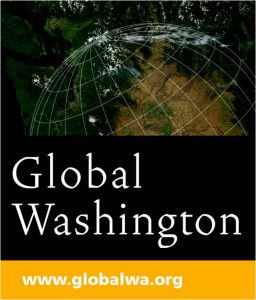 Global Washington is hiring a new Policy Coordinator to develop Global Washington’s policy activities, staff Global Washington’s state-wide policy panel and coordinate advocacy and outreach programs to increase the ability of the global development sector in the State of Washington to influence global development policy.
Global Washington is hiring a new Policy Coordinator to develop Global Washington’s policy activities, staff Global Washington’s state-wide policy panel and coordinate advocacy and outreach programs to increase the ability of the global development sector in the State of Washington to influence global development policy.
Click here for the full job description…
FEATURED ORGANIZATION: iLEAP – The Center for Critical Service
You know you want to do something to help end global poverty, but you don’t know what.
You have a good idea about what you want to do, but you aren’t sure whether it is really needed or how you should do it.
You know what you want to do and that it is needed, but you don’t know anyone in Seattle or overseas who could give you advice and support along the way.
Your organization has staff abroad that needs training in project development, leadership skills, evaluation and/or funding.
 Learning what needs to be done, critically examining projects, and finding support, both at home and abroad, are subjects we in the community concerned about global poverty need to explore. Fortunately, iLEAP: The Center for Critical Service is here to help.
Learning what needs to be done, critically examining projects, and finding support, both at home and abroad, are subjects we in the community concerned about global poverty need to explore. Fortunately, iLEAP: The Center for Critical Service is here to help.
iLEAP is an unique international education and training nonprofit organization based in Seattle that brings together participants from around the world who are working in a specific area of global development to help them learn the skills and make the connections they need for their projects to be successful. Born of many years of dissatisfaction with development training programs packed with technical detail, but lacking either critical context or ongoing support, iLEAP was created to marry the academic task of analysis with the practical skills individuals and groups need to turn such learning into action.
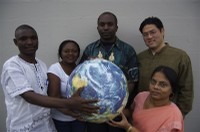 Imagine an American who wants to work abroad on hunger, food security or sustainable agriculture, but doesn’t know how or where he might be useful. Imagine a Zambian in charge of a sustainable agriculture program who needs information about how others have organized and supported such programs, and who wants to further develop his leadership skills, learn how to market his program or speak publicly about it. Put them both together in a training program where they can learn from each other. Have both learn about sustainable agriculture programs in western Washington, as well as get to know people and organizations that are doing similar work. Put them in touch with the funding sources in the fertile Seattle valley and create structures that will foster long-term collaboration.
Imagine an American who wants to work abroad on hunger, food security or sustainable agriculture, but doesn’t know how or where he might be useful. Imagine a Zambian in charge of a sustainable agriculture program who needs information about how others have organized and supported such programs, and who wants to further develop his leadership skills, learn how to market his program or speak publicly about it. Put them both together in a training program where they can learn from each other. Have both learn about sustainable agriculture programs in western Washington, as well as get to know people and organizations that are doing similar work. Put them in touch with the funding sources in the fertile Seattle valley and create structures that will foster long-term collaboration.
A romantic ideal about collaborative global partnerships? No. This is reality and it is being actively practiced in Seattle and around the world through iLEAP’s programs.
This is Paul Samba, a Zambian leader in sustainable agriculture who was a member of the 2009 iLEAP International Fellowship program and is now a part of the iLEAP faculty upon his return to Zambia. This is Michael Kraft, a participant in iLEAP’s Taking the LEAP Program who has joined Paul in Zambia, The two spent parts of several months together here in Seattle where they both studied Social Enterprise and Innovation, Collaborative Leadership, Sustainability, both ecological and social, and Reflective Practice. Paul will mentor iLEAP’s American participants such as Michael during his time in Zambia. When he returns from Zambia, Michael will spend a couple of months debriefing back in Seattle in iLEAP’s ‘Bringing it Home’ curriculum, where he will process his time in Zambia and, most importantly, explore what he will do next as the result of this experience.
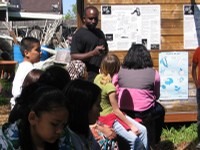 iLEAP is the brainchild of Britt Yamamoto and J.B. Hoover, both of whom have had substantial experience overseas in development programs where they met. Britt is currently Core Faculty in the Antioch University Seattle Center for Creative Change, a Master’s Program which prepares students to take leadership roles in social change. He is also a clinical faculty member in the University of Washington Department of Global Health. J.B. is the President of the iLEAP Board of Directors.
iLEAP is the brainchild of Britt Yamamoto and J.B. Hoover, both of whom have had substantial experience overseas in development programs where they met. Britt is currently Core Faculty in the Antioch University Seattle Center for Creative Change, a Master’s Program which prepares students to take leadership roles in social change. He is also a clinical faculty member in the University of Washington Department of Global Health. J.B. is the President of the iLEAP Board of Directors.
iLEAP has its origins in a class Britt taught at the UW where students chose a service project to work in, but the class work consisted of a rigorous analysis of the very programs the students were volunteering in. Did the program lead to systemic change? What were the assumptions under which the organization works? Were they stated or unstated? Were they doing a job that needed to be done? How could they really know? If it was worth doing, were there better ways to do it? What were the student’s own assumptions in doing ‘good work’ and ‘serving others’? Students learned to look at the efforts of their organizations and their own efforts with a careful, critical eye. But they also married analysis to action, and training to real connection with others. Britt was awarded one of the University of Washington’s Excellence in Teaching awards as the result of creating this course.
Since 2004, iLEAP has been creating international training and education programs lasting from from 1 day to 9 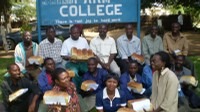 months for specific sectors. Another of its programs, Social Innovation in Seattle, brings Japanese students to the U.S. for a month long course that introduces them to the idea of social enterprise and innovation and helps them make connections with local non profit organizations and area businesses.
months for specific sectors. Another of its programs, Social Innovation in Seattle, brings Japanese students to the U.S. for a month long course that introduces them to the idea of social enterprise and innovation and helps them make connections with local non profit organizations and area businesses.
iLEAP now has ten International Faculty around the world. These Faculty are graduates of the iLEAP International Fellowship and have all received an extensive training in Seattle. Upon the completion of the program, iLEAP Faculty are then available to mentor Taking the LEAP participants from America, like Michael Kraft, who come to live and do volunteer service in their communities.
Three Faculty in India are working in computer literacy, education, women and children, tribal communities and social justice. In Nepal, a Faculty member works in social justice and human rights, in Sri Lanka another works in 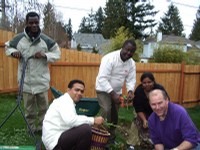 sustainable agriculture and social justice. In Cameroon, one works in sustainable agriculture, education and forestry. Issues involving women and children are the focus of Faculty in Togo. In Uganda, Faculty works in HIV AIDS, public health and interfaith coalitions. In Zambia, Paul Samba continues his work in sustainable agriculture. Finally, the iLEAP Faculty member in Liberia works in peace, conflict resolution and education. iLEAP Faculty continue to share their successes and challenges with each other through the iLEAP blog, accessible at www.ileap.org/blog.
sustainable agriculture and social justice. In Cameroon, one works in sustainable agriculture, education and forestry. Issues involving women and children are the focus of Faculty in Togo. In Uganda, Faculty works in HIV AIDS, public health and interfaith coalitions. In Zambia, Paul Samba continues his work in sustainable agriculture. Finally, the iLEAP Faculty member in Liberia works in peace, conflict resolution and education. iLEAP Faculty continue to share their successes and challenges with each other through the iLEAP blog, accessible at www.ileap.org/blog.
Because of its emphasis on cross-sector collaboration, capacity building, and global justice, iLEAP works closely with Global Washington and its members. It already works with a great number of Global Washington member organizations; helping participants make the connections with others doing similar work is a critical part of iLEAP’s vision. In return, many of iLEAP’s International Fellows participate in Global Washington events.
Member organizations with staff in foreign countries that may need to develop leadership skills might want to think 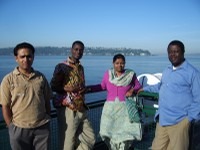 about entering them in the Fellows Program, or collaborating with iLEAP to serve as a site placement for one of their many programs. Members with volunteers who want some direction and guidance while in country might want to consider sending them to the Taking the LEAP Program. iLEAP is capable of working with any organization, business or agency and they are actively seeking new ways to collaborate with others to advance the learning of their global participants and to strengthen partnerships with local organizations for mutual benefit.
about entering them in the Fellows Program, or collaborating with iLEAP to serve as a site placement for one of their many programs. Members with volunteers who want some direction and guidance while in country might want to consider sending them to the Taking the LEAP Program. iLEAP is capable of working with any organization, business or agency and they are actively seeking new ways to collaborate with others to advance the learning of their global participants and to strengthen partnerships with local organizations for mutual benefit.
To learn more about iLEAP: The Center for Critical Service, click here.
CHANGEMAKER: Jeff Keenan, Our Day to End World Poverty
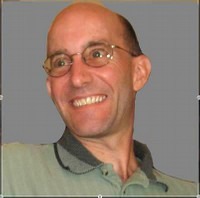 A highly placed software management guru writes an important guide to ending world poverty. That is how Jeff Keenan got from there to here.
A highly placed software management guru writes an important guide to ending world poverty. That is how Jeff Keenan got from there to here.
Three principles guide Jeff’s life: family, faith and fairness. He believes that living his faith authentically requires giving to others, so he has long been active in local charitable activities: homebuilding, food banks and animal welfare to name just a few. The core of his life is his wife and six children. But his faith pushes him to think beyond his own family to the perspective of parents who cannot provide their children with life’s necessities. Finally, he practices basic fairness, a sensibility he believes is universally shared, and which, if tapped on a large scale, could change the world.
Jeff’s first-hand experience with living his principles in a global setting began in 2002 when Adobe sent him to Singapore to develop the supply chain for Adobe products in Asia and the Pacific. His work then took him to Indonesia and Malaysia. Between 2006 and 2008 he worked on start ups in the Czech Republic, Russia and Germany. As Strategic Initiatives Manager for Adobe, Jeff has been closely involved with the Corporate Social Responsibility movement.
This work abroad brought him face to face with global poverty and then to a question that began to demand an answer 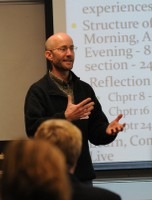 from him, “I know how important each of my children is to me. What would I want someone else to do if I couldn’t provide for them?” As the demand for an answer grew stronger he first thought he might have to leave business to find it. But he soon realized that the corporate world had already provided him with lessons that would be useful. The same quality principles, continuous improvement methodologies, and ways of setting up new projects he employed for Adobe could help in this new setting.
from him, “I know how important each of my children is to me. What would I want someone else to do if I couldn’t provide for them?” As the demand for an answer grew stronger he first thought he might have to leave business to find it. But he soon realized that the corporate world had already provided him with lessons that would be useful. The same quality principles, continuous improvement methodologies, and ways of setting up new projects he employed for Adobe could help in this new setting.
His idea was that he might engage the sense of fairness that resides in each of us if he could provide resources and information that would give us the ability to act. He was aware of the book, 50 Simple Things You Can Do to Save the Earth, by The Earthworks Group, which focuses on how people can have a practical impact on environmental problems. Jeff thought a similar book with practical suggestions about how ordinary people can do something about global poverty might be an answer. He would write a resource to engage the non-activist.
He approached Joy Anderson of Criterion Ventures, who was generous with her time, and sought out many others with similar expertise. Joy then found two other team members to work with him: Shannon Daley-Harris, a free lance writer who had worked with several organizations such as the Children’s Defense Fund, the Robert Wood Johnson Foundation, and the National Council of Churches, and Karen Speerstra, the President of Sophia Serve, a coaching service for writers and publishers. After two years of teleconferences working out first the book’s vision and mission and then the actual content, Our Day to End World Poverty, 24 Ways You Can Make A Difference, was published in June 2007.
 The structural metaphor of the book is the 24 hour day, connecting activities we all perform in the morning, afternoon and evening chapters of our lives, such as taking our kids to school, or sending an email, to similar activities that, if applied globally, could help end poverty. Thus, ways people could be involved in global education or enhancing information technology in the underdeveloped world are detailed. Each discussion of an activity ends with several ideas through which the reader can provide several responses: Learning, Contributing, Serving, and Living. Along the way there are illustrative stories about people and organizations making a difference.
The structural metaphor of the book is the 24 hour day, connecting activities we all perform in the morning, afternoon and evening chapters of our lives, such as taking our kids to school, or sending an email, to similar activities that, if applied globally, could help end poverty. Thus, ways people could be involved in global education or enhancing information technology in the underdeveloped world are detailed. Each discussion of an activity ends with several ideas through which the reader can provide several responses: Learning, Contributing, Serving, and Living. Along the way there are illustrative stories about people and organizations making a difference.
The marketing of the book has been on a person-to-person and word-of-mouth basis, but the book team knows it is being read and used. The Lutheran church, for example, created a curriculum around the book for use in their church schools, and this curriculum is available for wide use through the Internet. The book has thus far sold a modestly successful 10,000 copies. But Jeff and his co-authors measure the true success of the book by way of the anecdotal stories which show how the book has made a difference. The middle-school teacher who now does a “Global Poverty Awareness” week with his students; the Sunday School class which raised money for alleviating poverty; the social venture capital investor who received the book as a gift after speaking to a social entrepreneurship conference.
While working on the content of the book, Jeff became acquainted with and then involved in many of the organizations that are members of Global Washington, as well as a member of Global Washington’s steering committee. He is now a volunteer, donor, or investor to several organizations such as Global Partnerships, Adoption Advocates International, Mercy Corps, Microcredit Summit Campaign, VillageReach, Fonkoze, Initiative for Global Development, and Business for Social Responsibility. In addition to multiple donations of Adobe software, Jeff has made himself available for review and input on key strategic initiatives with many of these organizations and others. Additionally, Jeff recently co-convened the first Pacific NW Microfinance Conference at Seattle Pacific University, which included representation from World Vision, Global Partnerships, Seattle Microfinance, Agros International, Unitus, Grameen Technology, and many others.
volunteer, donor, or investor to several organizations such as Global Partnerships, Adoption Advocates International, Mercy Corps, Microcredit Summit Campaign, VillageReach, Fonkoze, Initiative for Global Development, and Business for Social Responsibility. In addition to multiple donations of Adobe software, Jeff has made himself available for review and input on key strategic initiatives with many of these organizations and others. Additionally, Jeff recently co-convened the first Pacific NW Microfinance Conference at Seattle Pacific University, which included representation from World Vision, Global Partnerships, Seattle Microfinance, Agros International, Unitus, Grameen Technology, and many others.
Making a difference is a motivation that most of us share. If you’re looking for a way to start, one good way would be to read Our Day to End World Poverty and then pass it on to a friend.
GLOBAL ENTERTAINMENT: Africa, The Politics of Suffering and Smiling
 Africa, the Politics of Suffering and Smiling By Patrick Chabal.
Africa, the Politics of Suffering and Smiling By Patrick Chabal.
I was drawn to this book by its title. It seemed to speak to the antipodal forces of misery and attraction so evident in much of Africa today. Turns out the title was written in 1978 as the title to a song by the Nigerian songwriter, Fela Ransom Kuti. Had I run across the song first, I probably wouldn’t have read the book, which would have been my loss.
Lacking training in political science or at least the social sciences will be a liability for any reader attempting to strike through this territory. On the other hand, such a reader probably isn’t offended by the author’s decision to renounce current theories of political science in favor of looking at how sub-Saharan Africans experience politics in their everyday lives. Those who manage to hang on to the end, albeit skimming atop the waves of academic linguistic excesses, may receive insights that reward their effort.
Chabal, a professor at King’s College London, and a political scientist who has written broadly about Africa and more specifically about Lusophonic Africa, eschews imposing Western political theories of structuralism, post-modernism, etc. on sub-Saharan African political life. Instead he focuses on a more anthropological pursuit: describing how people live their lives, deal with others, or interact with politics.
Right out of the box he addresses the criticism that sub-Saharan Africa is too large and diverse an area to draw generalizations from it. He points out that studies of European or South American politics are not similarly disparaged. The more appropriate question is whether the generalizations he draws provide insight or not, not whether they can be shown to be valid everywhere.
Divided into seven chapters, the book’s first three chapters examine the ideas of being, belonging and believing, what people find important about themselves and believe about themselves and their relationship to others. The next two address partaking and striving, how people manage their political and economic relationships and the constraints which confront their efforts. The last two chapters address surviving and suffering, addressing the enormous difficulties Africans face and the resources they deploy to address them.
Chabal’s basic theme is that African political systems cannot be successfully analyzed without regard to the social identity of their inhabitants. Chabal denies that he is taking the essentialist part of the argument against the structuralists. He simply posits that you cannot understand how Africans are organized politically unless you understand the continued vitality of origin, ancestors and locality which results in a system of reciprocal obligations that are markers of community. Africans, for the most part, are born into communities where origin is important. Chabal is not suggesting that Africans follow a “cult” of ancestors. He observes that where Africans’ ancestors are buried continues to have relevance to who they believe themselves to be today. Where origin and ancestors remain important, politicians themselves must pay attention to origin and ancestors. Thus locality remains central in African politics even when a politician is operating on a national stage.
Identity on the other hand, Chabal maintains, is frequently mutable. Thus the obsession with studying ethnicity or religion as markers of identity misses the point. Pre-colonial ethnicity was much more fluid than is commonly suggested, with people moving in an out of ethnic groups and geographical boundaries. Colonial rule ossified that practice by organizing society along ethnic lines, but did not entomb it completely. People continued to move. Although Independence exacerbated the use of ethnicity as a method of political control and the patrimonial society grew up using its channels, Chabal denies that ethnicity has the significance that many Western observers insist. Chabal contends that the wave of religious conversions to Islam and Christianity and currently to Pentacostalism do not create a new essential identity that no longer has to bargain with other forms of African identity. Historically, religion has been an intermittent or added identify factor not a displacer.
That the primacy of community and locality prevails over the individual is frequently discussed in social science studies of Africa, but mostly as a staging post in a “universal process of human development that results in converging forms of individualization.” Chabal instead believes its study is essential to understanding African politics today. The place of women, elders and the importance of authority as opposed to power may be more important markers of African society than ethnicity. All are affected by the place from which these actors arise. Programs that assume that women or seniors or even politicians are individual actors free or even willing to chose their own course of action will founder in the absence of this understanding.
Chabal’s point is not that this is good or bad, but simply that it is and thus must be considered by anyone seriously interested in African politics and economics. The notion that every individual is equal, upon which democratic politics and especially multi-party politics are based, is difficult to integrate with the existing system of reciprocal obligations. In political terms the politician’s obligations to his place of origin may be antithetical to his duties to the nation. From the point of view of the community, it is often less important how a politician obtained power, than whether he or she follows the existing rules of reciprocal obligations. Further, despite a long historical tradition of migration within Africa, the conflict between who is a native and thus bound by the same obligations, and who is not, has become increasingly severe in conflicts affecting land ownership and other resources competitions. Urbanization creates conflicts between migrants and the traditional local inhabitants that democratic concepts of one person-one vote can’t mitigate. Multi-party politics exacerbates these conflicts when rewarding kinship networks becomes the method of retaining or attaining power.
To the extent that current development theories are based on the self interest of the individual, it is hard to see how they can be applied in communal societies based on reciprocity. The researcher’s task, Chabal says, is to decode what makes sense to people on the local level without imposing on them a theoretical or ideological agenda. Readers involved in development work in Africa should read the whole book to see how Chabal works this theme through a variety of modern contexts and to consider whether his conclusions might affect their own work.
ANNOUNCEMENTS
 New Staff at Global Washington: Global Washington welcomes the newest addition to the team, Angela Dollar, as our Communications & Administrative Coordinator. Angela comes to us from member organization Crooked Trails, a non-profit community-based travel organization. She looks forward to meeting many of you at upcoming events; feel free to contact her at angela@globalwa.org and 206-652-8725.
New Staff at Global Washington: Global Washington welcomes the newest addition to the team, Angela Dollar, as our Communications & Administrative Coordinator. Angela comes to us from member organization Crooked Trails, a non-profit community-based travel organization. She looks forward to meeting many of you at upcoming events; feel free to contact her at angela@globalwa.org and 206-652-8725.- Save the Date! Global Washington Conference: A Blueprint for Action is scheduled for December 7th at the Microsoft campus. Join us as we explore leading trends and opportunities in global development, share best practices, develop cross-sector strategies, inspire and share innovations. Get connected and help us build a shared strategy for Washington to enhance global development leadership.
- Sign A Petition to Make US Foriegn Aid More Effective: Show you support for reforming US foreign assistance by endorsing a letter that calls on our representatives to co-sponsor an important new bill. This bill requires the President to develop a clear global development strategy and develop a monitoring system to evaluate the progress of US programs. You can endorse the letter by clicking here; please contact max@globalwa.org with any questions.
GLOBAL WASHINGTON UPCOMING EVENTS
- July 15th: GLOBAL SOCIAL: Convening Central and South Asia
- August 19th: GLOBAL SOCIAL: East and South East Asia
- December 7th: GLOBAL WASHINGTON CONFERENCE: A Blueprint for Action
OTHER UPCOMING EVENTS
Click here to see a full list of international development events on the Global Washington’s calendar. Upcoming events include:
- June 19: Lecture by Professor Dilys Walker, MD
- June 22: Perspectives on East Asia for Teachers: Contemporary Japan
- June 23: INTERNATIONAL ECONOMIC SUMMIT (IES)
- June 25: Fundraising in Changing Times
- June 25: Microfinance and Microbrews
- June 29: YPIN: The Cell Phone Revolution in the Developing World
- July 1: “Camp Spanglish”
- July 2: Teacher Workshop: Delivering Global Education Through Internet Games & Virtual Worlds
- July 8: A Special Evening with General David Petraeus
Please submit your events to our calendar!
 Welcome to development policy posts on the Global Washington blog! You may wonder why we need another development policy blog, since there are so many great global development blogs already out there. Well, this blog is different- we will bring you the news and noteworthy ideas on a weekly basis, with a special emphasis on issues of interest to the development community in Washington State. Our state is second only to the “other Washington” in organizations committed to global development, and now the many voices of development in Washington State have a venue to come together to discuss and influence policy.
Welcome to development policy posts on the Global Washington blog! You may wonder why we need another development policy blog, since there are so many great global development blogs already out there. Well, this blog is different- we will bring you the news and noteworthy ideas on a weekly basis, with a special emphasis on issues of interest to the development community in Washington State. Our state is second only to the “other Washington” in organizations committed to global development, and now the many voices of development in Washington State have a venue to come together to discuss and influence policy.










 “Hope,” according to Roy Prosterman,
“Hope,” according to Roy Prosterman, 














 Global Washington is hiring a new Policy Coordinator to develop Global Washington’s policy activities, staff Global Washington’s state-wide policy panel and coordinate advocacy and outreach programs to increase the ability of the global development sector in the State of Washington to influence global development policy.
Global Washington is hiring a new Policy Coordinator to develop Global Washington’s policy activities, staff Global Washington’s state-wide policy panel and coordinate advocacy and outreach programs to increase the ability of the global development sector in the State of Washington to influence global development policy. Learning what needs to be done, critically examining projects, and finding support, both at home and abroad, are subjects we in the community concerned about global poverty need to explore. Fortunately, iLEAP: The Center for Critical Service is here to help.
Learning what needs to be done, critically examining projects, and finding support, both at home and abroad, are subjects we in the community concerned about global poverty need to explore. Fortunately, iLEAP: The Center for Critical Service is here to help. Imagine an American who wants to work abroad on hunger, food security or sustainable agriculture, but doesn’t know how or where he might be useful. Imagine a Zambian in charge of a sustainable agriculture program who needs information about how others have organized and supported such programs, and who wants to further develop his leadership skills, learn how to market his program or speak publicly about it. Put them both together in a training program where they can learn from each other. Have both learn about sustainable agriculture programs in western Washington, as well as get to know people and organizations that are doing similar work. Put them in touch with the funding sources in the fertile Seattle valley and create structures that will foster long-term collaboration.
Imagine an American who wants to work abroad on hunger, food security or sustainable agriculture, but doesn’t know how or where he might be useful. Imagine a Zambian in charge of a sustainable agriculture program who needs information about how others have organized and supported such programs, and who wants to further develop his leadership skills, learn how to market his program or speak publicly about it. Put them both together in a training program where they can learn from each other. Have both learn about sustainable agriculture programs in western Washington, as well as get to know people and organizations that are doing similar work. Put them in touch with the funding sources in the fertile Seattle valley and create structures that will foster long-term collaboration. iLEAP is the brainchild of Britt Yamamoto and J.B. Hoover, both of whom have had substantial experience overseas in development programs where they met. Britt is currently Core Faculty in the Antioch University Seattle Center for Creative Change, a Master’s Program which prepares students to take leadership roles in social change. He is also a clinical faculty member in the University of Washington Department of Global Health. J.B. is the President of the iLEAP Board of Directors.
iLEAP is the brainchild of Britt Yamamoto and J.B. Hoover, both of whom have had substantial experience overseas in development programs where they met. Britt is currently Core Faculty in the Antioch University Seattle Center for Creative Change, a Master’s Program which prepares students to take leadership roles in social change. He is also a clinical faculty member in the University of Washington Department of Global Health. J.B. is the President of the iLEAP Board of Directors. months for specific sectors. Another of its programs, Social Innovation in Seattle, brings Japanese students to the U.S. for a month long course that introduces them to the idea of social enterprise and innovation and helps them make connections with local non profit organizations and area businesses.
months for specific sectors. Another of its programs, Social Innovation in Seattle, brings Japanese students to the U.S. for a month long course that introduces them to the idea of social enterprise and innovation and helps them make connections with local non profit organizations and area businesses. sustainable agriculture and social justice. In Cameroon, one works in sustainable agriculture, education and forestry. Issues involving women and children are the focus of Faculty in Togo. In Uganda, Faculty works in HIV AIDS, public health and interfaith coalitions. In Zambia, Paul Samba continues his work in sustainable agriculture. Finally, the iLEAP Faculty member in Liberia works in peace, conflict resolution and education. iLEAP Faculty continue to share their successes and challenges with each other through the iLEAP blog, accessible at www.ileap.org/blog.
sustainable agriculture and social justice. In Cameroon, one works in sustainable agriculture, education and forestry. Issues involving women and children are the focus of Faculty in Togo. In Uganda, Faculty works in HIV AIDS, public health and interfaith coalitions. In Zambia, Paul Samba continues his work in sustainable agriculture. Finally, the iLEAP Faculty member in Liberia works in peace, conflict resolution and education. iLEAP Faculty continue to share their successes and challenges with each other through the iLEAP blog, accessible at www.ileap.org/blog. about entering them in the Fellows Program, or collaborating with iLEAP to serve as a site placement for one of their many programs. Members with volunteers who want some direction and guidance while in country might want to consider sending them to the Taking the LEAP Program. iLEAP is capable of working with any organization, business or agency and they are actively seeking new ways to collaborate with others to advance the learning of their global participants and to strengthen partnerships with local organizations for mutual benefit.
about entering them in the Fellows Program, or collaborating with iLEAP to serve as a site placement for one of their many programs. Members with volunteers who want some direction and guidance while in country might want to consider sending them to the Taking the LEAP Program. iLEAP is capable of working with any organization, business or agency and they are actively seeking new ways to collaborate with others to advance the learning of their global participants and to strengthen partnerships with local organizations for mutual benefit. A highly placed software management guru writes an important guide to ending world poverty. That is how Jeff Keenan got from there to here.
A highly placed software management guru writes an important guide to ending world poverty. That is how Jeff Keenan got from there to here. from him, “I know how important each of my children is to me. What would I want someone else to do if I couldn’t provide for them?” As the demand for an answer grew stronger he first thought he might have to leave business to find it. But he soon realized that the corporate world had already provided him with lessons that would be useful. The same quality principles, continuous improvement methodologies, and ways of setting up new projects he employed for Adobe could help in this new setting.
from him, “I know how important each of my children is to me. What would I want someone else to do if I couldn’t provide for them?” As the demand for an answer grew stronger he first thought he might have to leave business to find it. But he soon realized that the corporate world had already provided him with lessons that would be useful. The same quality principles, continuous improvement methodologies, and ways of setting up new projects he employed for Adobe could help in this new setting. The structural metaphor of the book is the 24 hour day, connecting activities we all perform in the morning, afternoon and evening chapters of our lives, such as taking our kids to school, or sending an email, to similar activities that, if applied globally, could help end poverty. Thus, ways people could be involved in global education or enhancing information technology in the underdeveloped world are detailed. Each discussion of an activity ends with several ideas through which the reader can provide several responses: Learning, Contributing, Serving, and Living. Along the way there are illustrative stories about people and organizations making a difference.
The structural metaphor of the book is the 24 hour day, connecting activities we all perform in the morning, afternoon and evening chapters of our lives, such as taking our kids to school, or sending an email, to similar activities that, if applied globally, could help end poverty. Thus, ways people could be involved in global education or enhancing information technology in the underdeveloped world are detailed. Each discussion of an activity ends with several ideas through which the reader can provide several responses: Learning, Contributing, Serving, and Living. Along the way there are illustrative stories about people and organizations making a difference. volunteer, donor, or investor to several organizations such as Global Partnerships, Adoption Advocates International, Mercy Corps, Microcredit Summit Campaign, VillageReach, Fonkoze, Initiative for Global Development, and Business for Social Responsibility. In addition to multiple donations of Adobe software, Jeff has made himself available for review and input on key strategic initiatives with many of these organizations and others. Additionally, Jeff recently co-convened the first Pacific NW Microfinance Conference at Seattle Pacific University, which included representation from World Vision, Global Partnerships, Seattle Microfinance, Agros International, Unitus, Grameen Technology, and many others.
volunteer, donor, or investor to several organizations such as Global Partnerships, Adoption Advocates International, Mercy Corps, Microcredit Summit Campaign, VillageReach, Fonkoze, Initiative for Global Development, and Business for Social Responsibility. In addition to multiple donations of Adobe software, Jeff has made himself available for review and input on key strategic initiatives with many of these organizations and others. Additionally, Jeff recently co-convened the first Pacific NW Microfinance Conference at Seattle Pacific University, which included representation from World Vision, Global Partnerships, Seattle Microfinance, Agros International, Unitus, Grameen Technology, and many others. Africa, the Politics of Suffering and Smiling
Africa, the Politics of Suffering and Smiling New Staff at Global Washington: Global Washington welcomes the newest addition to the team, Angela Dollar, as our Communications & Administrative Coordinator. Angela comes to us from member organization Crooked Trails, a non-profit community-based travel organization. She looks forward to meeting many of you at upcoming events; feel free to contact her at
New Staff at Global Washington: Global Washington welcomes the newest addition to the team, Angela Dollar, as our Communications & Administrative Coordinator. Angela comes to us from member organization Crooked Trails, a non-profit community-based travel organization. She looks forward to meeting many of you at upcoming events; feel free to contact her at